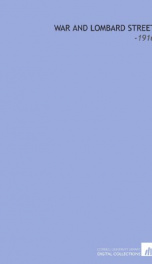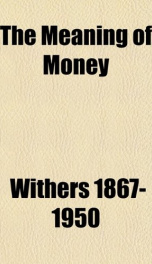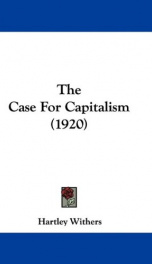poverty and waste

Purchase of this book includes free trial access to www.million-books.com where you can read more than a million books for free. This is an OCR edition with typos. Excerpt from book: CHAPTER III THE CLAIMS OF CAPITAL In the last chapter it was asserted that lack of capital stands in the way of many profitable and useful enterprises that are waiting to be taken in hand, and that if people saved more v there would be more capital to be had. As capital is rather a difficult matter, it is better to make this clear before we go any further. Capital is defined by economists as wealth set aside to be used in production. A certain amount of it is necessary before any industry can begin its work; because industry implies making or growing something, and, during the process of making or growing, those who are at work have to be kept alive out of a store that has been set aside beforehand to that end. Professor Walker's well-known example is that of a member of a savage tribe, living precariously on fish " caught from therocks which jut into the sea," who lays up a store of dried fish, and keeping himself alive thereon, makes himself a canoe, and thereafter can " paddle in it out to the ' banks' which lie two or three miles from shore, where in one day he can get as many fish as he could catch from off the rocks in a week." His store of dried fish was his capital, which he reserved from consumption and kept to live on while making his canoe. Having done so, he has put his capital into a canoe and can let it out to his neighbours, taking payment from them in the form of part of their catch, on which he can live, while he himself builds more canoes and sells them in exchange for the labour of the rest of the tribe. The point at which he left off being a mere hand-to-mouth worker and consumer and became a capitalist, was when, instead of eating all the fish that he caught, he saved some and dried them so that he might be kept alive while he carried out his can...
Info about the book
Author:
Series:
Unknown
ISBN:
1440099928
Rating:
4/5 (2)Your rating:
0/5
Languge:
English
Users who have this book
Users who want this book
What readers are saying
What do you think? Write your own comment on this book!
write a commentGenre
if you like poverty and waste try:
Do you want to exchange books? It’s EASY!
Get registered and find other users who want to give their favourite books to good hands!













